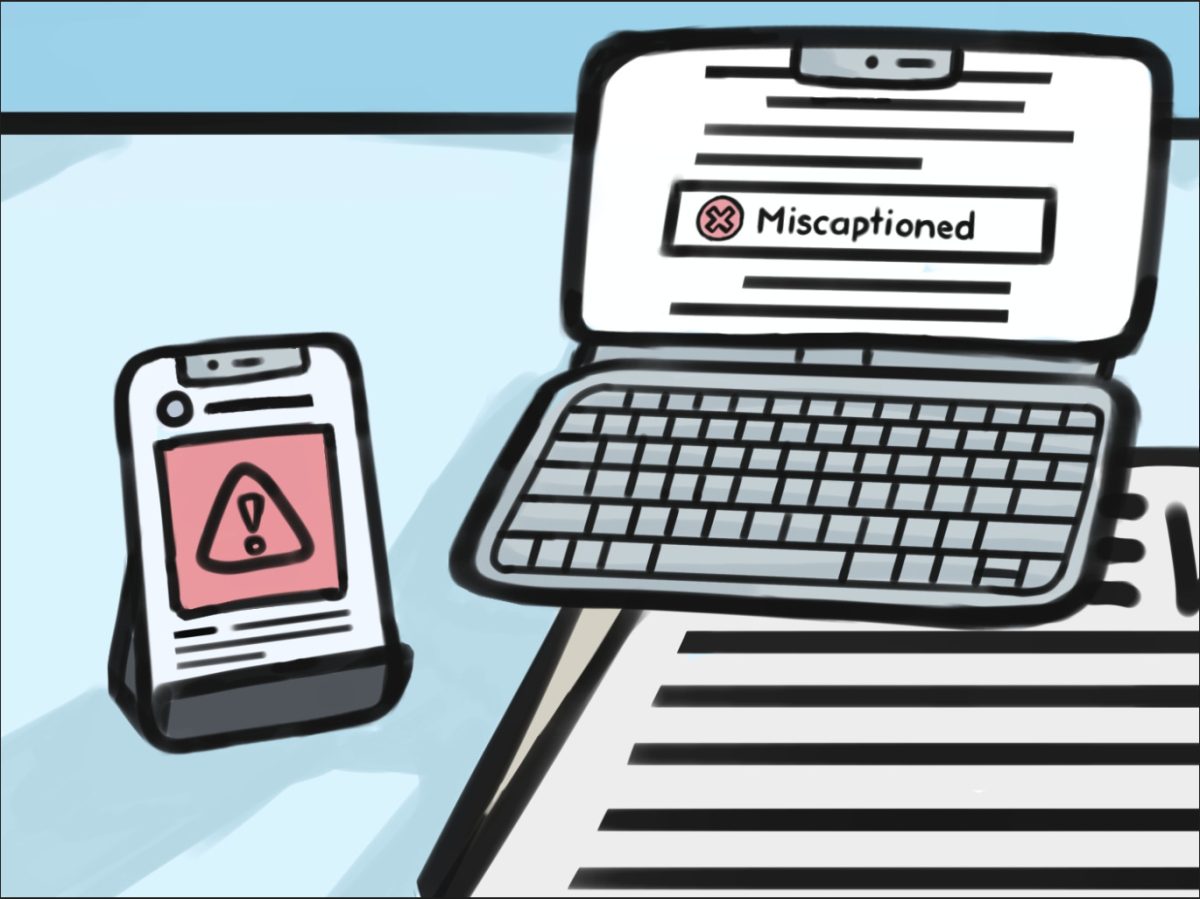Every April 2 since 2017 has been International Fact Checking Day. As a person living in the Information Age, there’s a high chance of seeing and hearing news from all kinds of sources and perspectives every day, especially online. In a time when people receive so much conflicting information, it’s important to know how to find and identify reliable sources and fact-check.
According to a survey conducted by The Pinion, 72% of the respondents said they get the majority of their news from social media. This is substantially more than the 23% of U.S. adults that said they get news there often, according to a fact sheet released by Pew Research in Nov. 2023. Meanwhile, 54% of U.S. teens got their news from social media at least a few times a week according to a 2019 survey by Survey Monkey and Common Sense Media.
However, only 64% of The Pinion survey respondents said they always fact-check news they see on social media. This means that for many McKinley students, double-checking the accuracy of the information they get online might not be their first priority.
But fact-checking information is an important step, and it doesn’t have to be a difficult process. Lateral reading is a concept originally created based on research by the Stanford History Education Group led by its founder and executive director Sam Wineburg. The process was developed as a method to help determine a source’s credibility. There are five main steps to using lateral reading to verify information you find online.
Find what other sources say about the topic
Find out if a claim or piece of information has been mentioned by other sources. For example, if you see a video claiming that a species called the Peruvian ball fish is the smallest animal with fully developed eyes, you might do an internet search on the species name to find out if it’s a real species. If it is, then there will most likely be many well-known science and news sites displaying information about the species.
However, if it’s made up, the only mentions of the supposed species might be on forums or blog pages. You might also find fact-checking sites disprove the claim. If it isn’t obvious from first glance whether the claim is true, you might want to view other articles on the topic.
Find a source that specializes in the topic
Many news sites only specialize in specific topics, and so they might be more reliable for some topics than others. For example, Forbes specializes in business, while the Smithsonian specializes more in science, nature and history. Therefore, if you want to learn about a recently discovered extinct species of bird, you might want to visit the Smithsonian over Forbes. On the other hand, if you want to find out more about Elon Musk’s most recent ventures, you might pick Forbes as your source.
Find out expert opinions on the source
It’s generally a safe idea to go to sites you know are well-trusted if you’re unsure about where to go to find reliable information on a source. However, if you’re unsure of a source’s credibility, it still might be a good idea to look into the sources you want to visit in order to know if a source you’ve never heard of has a good reputation and find out if they might have a bias on your subject matter.
Look at the author
Reliable sources will usually list the author’s name in the article as well as their qualifications. By reading the information about the author(s) listed, you can see if they are experts on your subject matter. You can also click on their name or look them up on the web to see if they have written other articles on similar topics.
Find other expert opinions
It’s always good to see more than one opinion on the same topic, as one author might include more information on the topic than another, and experts writing for reliable media companies can still have differing opinions. By using the previous steps, you can find if other sources agree on the topic and come up with your own opinion based on the information you read.
False or misleading information is becoming increasingly pervasive online. Fortunately, by maintaining a healthy dose of skepticism and properly fact-checking what you see online, you can be sure that you’re properly informed on the topics that matter.










